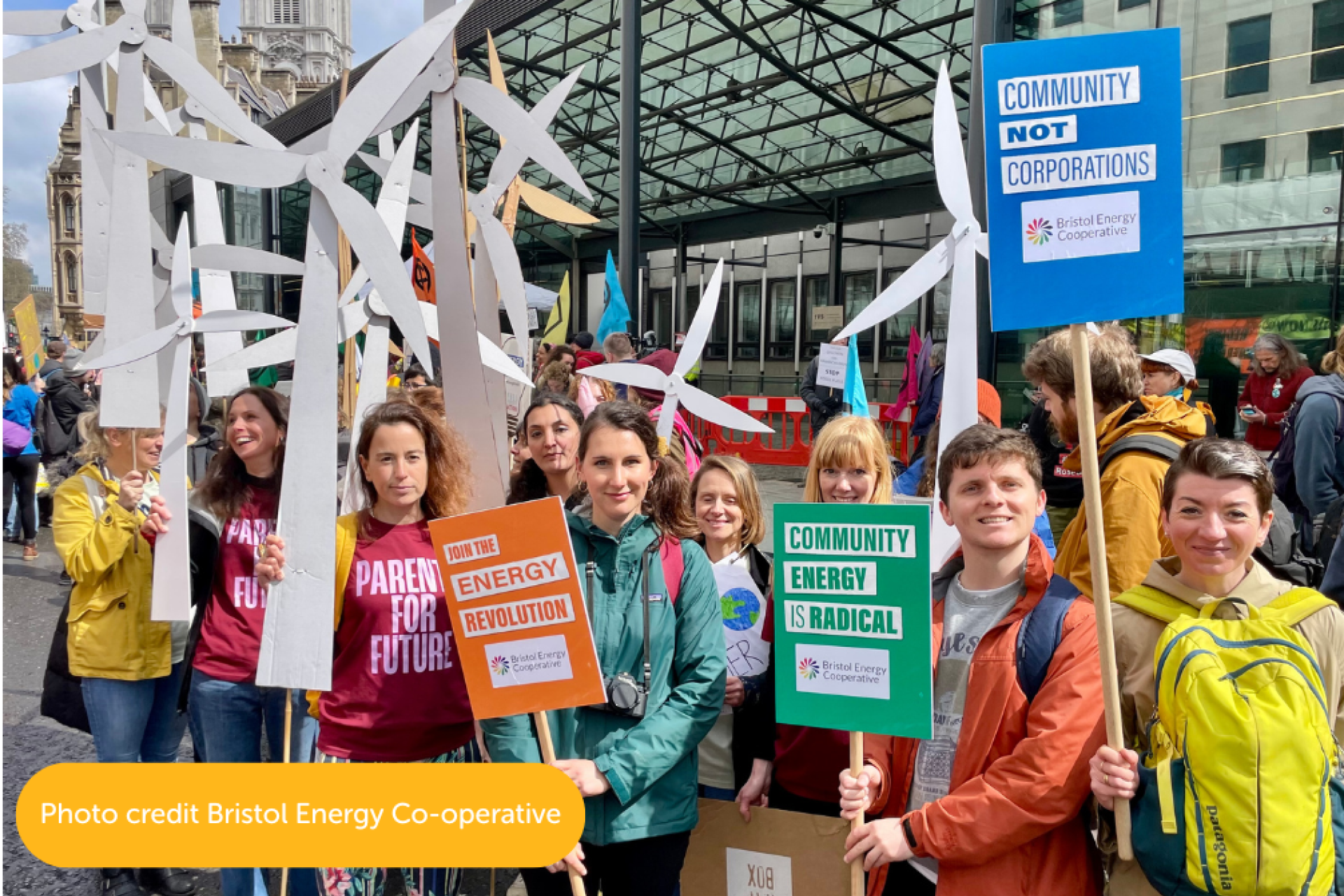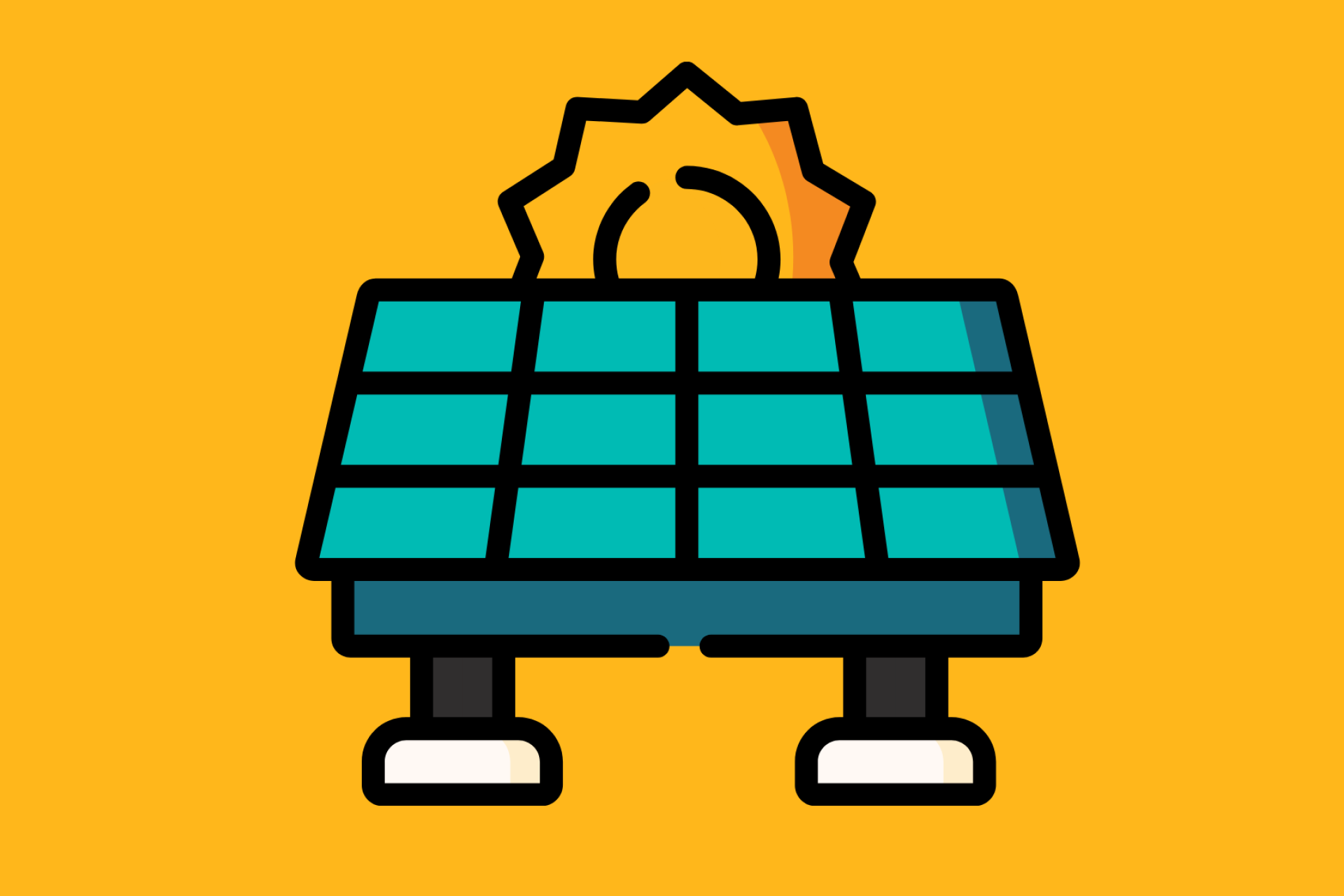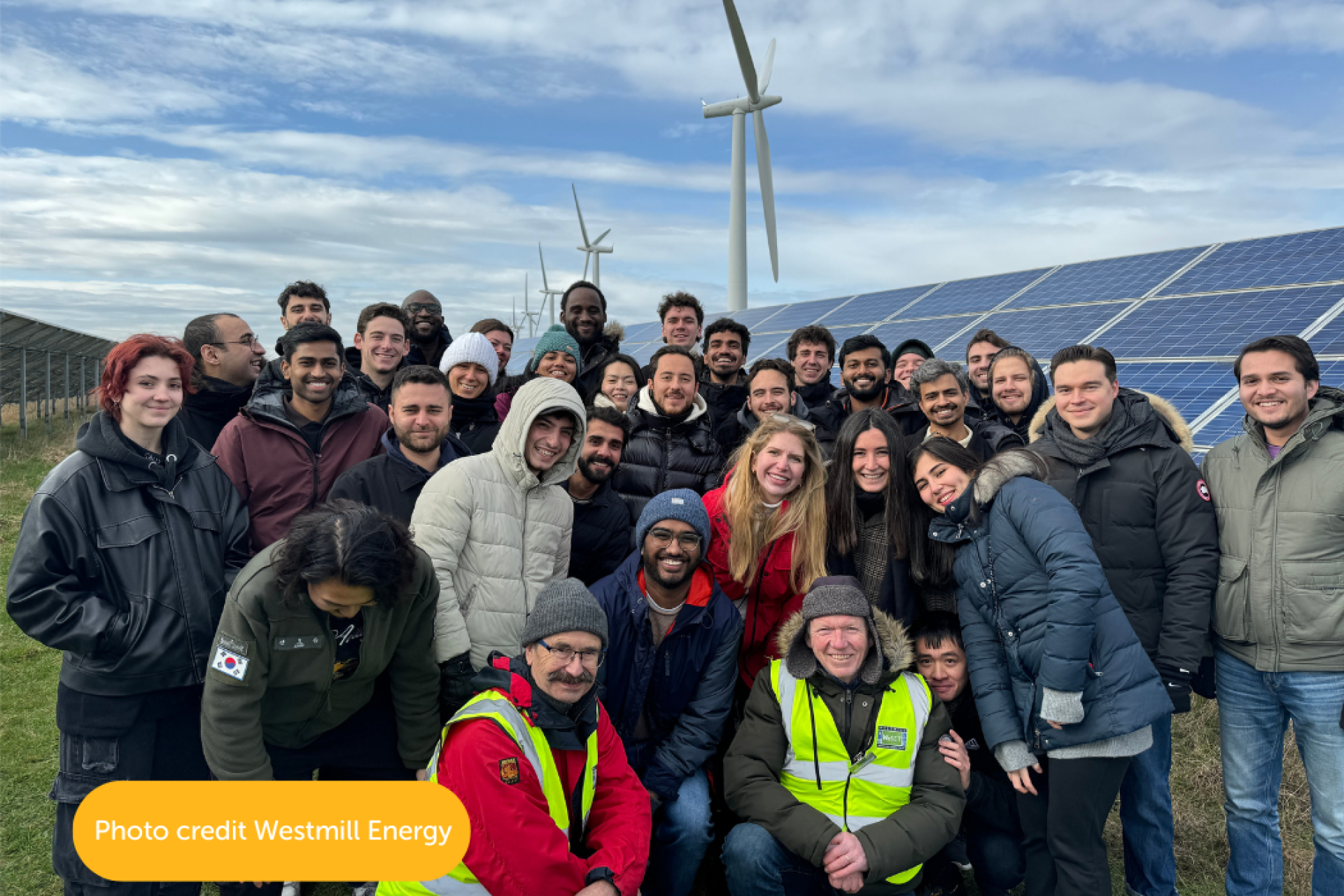Community Energy Roadmap
Our interactive Community Energy Roadmap walks you through every step of setting up a community energy group, from finding like-minded members, all the way to installing renewable assets and securing PPAs. Clear, practical, and easy to follow, it's your guide to bringing community energy ideas to life.
Discovery Phase
Development Phase
Project Planning Phase
Funding Phase
Construction Phase
Post-Build Phase
Development Phase
Development Phase
Development Phase
 Development Phase
Development Phase
Development Phase
Development Phase
 Development Phase
Development Phase
 Development Phase
Development Phase
Recruiting help
- Your community energy group will be set up as a legal entity, with projects running for 20+ years. It’s vital to have proper governance and committed people at the helm to ensure success. You don’t have to all commit to staying for the full 20 years!
- The best community energy Boards are when people from all ages, backgrounds, skillsets and communities work together. Read our blog post on encouraging diversity and inclusion in your group.
- In terms of practical first steps for identifying and recruiting potential Board members, you could host interest meetings or reach out through local networks – not just environmental ones!
- Remember, it’s normal to go through Forming, Storming, Norming and Performing (FSNP) – this describes the four stages of psychological development a team goes through as they work on a project. Teams move through each stage as they overcome challenges, learn to work together and eventually focus on accomplishing a shared goal. Read more here.
- There are a few options for your Board structure – some groups have quite a flat structure in which everyone is a Director; some groups have a CEO and Chair, then a Board of Directors underneath; some groups might assign specific Director roles, such as Marketing Director, Legal Director, Finance Director etc. You should check your group’s rules, most co-operatives must elect a Chair, Secretary and Treasurer in some way or another.
- Even though you’re only just setting up, it’s important to think about having a succession plan for Board members to ensure continuity as projects evolve over decades – most of your projects will be 20+ years long!
- It is worth checking for potential conflicts of interest and addressing them early on – getting everyone to declare conflicts of interest and note them down is good practice. For example, if someone in your group works for a solar panel installer, they should be outside of the installer procurement process.
Next step

Decide your group’s name, value and mission
- You might want to pick a group name that does what it says on the tin – “[Your town] Community Energy”, something more abstract like “Energise [Your Town]”, or something even more out there! As long as you can convey your mission to people, the name should be unique to your group. You could have a look through Community Energy England’s members for inspiration, but make sure to have a search on the Mutuals Society Register and/or your search engine to check the name isn’t already being used by another group.
- Your name might also be influenced by the types of projects you want to do – hydro, wind and/or solar might be in the name and your mission, or even if you’re just focusing on fuel poverty alleviation work.
- Setting a mission early on is not only a good activity for the Board to bond, but it ensures everyone is on the same page with what the priorities are for your group. For more on writing a mission statement, read here.
- Your values should be agreed upon by the Board so that everyone knows how to work towards your mission. For more on writing values, read here.
- Involving the broader community in discussions about the mission and values, where possible, is a great way to foster early buy-in and ensure your group is meeting the needs of the local area . This could involve running local events, having stalls at fairs and markets, forming partnerships with businesses, charity groups, schools and more.
Next step
Set up an online presence
- Having an online presence is key for people to find your group and start building a following early. Even without experience, you can get started with free or low-cost website builders like WordPress, and tutorials on YouTube. Social media accounts are also useful for growing your following and connecting with similar groups. Key platforms to consider are
- On the Community Energy Connect platform, we have a free course about the basics of social media.
- Even from early on, consider publishing a blog or newsletter on the website to share updates and attract potential supporters.
- One thing to bear in mind is GDPR. If you are collecting contact information (e.g., through mailing lists or membership sign-ups), you will need to cover this in a privacy policy. Luckily, many website hosting services have this already, but you must allow people to be able to request their data and unsubscribe at any time. Even if you are not explicitly collecting personal data through sign-ups, your website should have a privacy and cookie policy.
- Have a go at creating your branding – pick consistent colours, design a logo and set the tone early to show professionalism. Canva is a brilliant tool (and has a free version) that will help you create a set of templates and branded materials for consistency.
Next step

Pick a legal structure
- In order for your group to get a bank account and start applying for funding, you will need to be set up as a legal entity. It is important to do this before trading, entering any contracts, managing volunteers etc. to protect individuals from personal liability. Many community energy groups are set up as either Community Benefit Societies (CBSs), Community Interest Companies (CICs) or bona fide Co-Operative Societies.
- Here is a great guide by the Plunkett Foundation to help you choose.
Next step

Open a bank account
- Once you’re a legal entity, you should open a bank account so you can receive donations and grants, and make any payments.
- Some banks might not accept a CBS or CIC, so look around and see what is available to you. Here is a list of the current top ethical banks.
- Most banks require multiple signatories for transparency, so you should consider who in your board will be responsible for this.
Next step
Consider membership of networks
- There are some great networks your group can join to boost visibility, access help and resources, and find funding - as well as offering opportunities for collaboration. Here are our recommendations:
- These are the national membership bodies, depending on where you are based. However, there is also Community Energy London for any London-based groups.If you have limited resources early on, we recommend looking at these as a priority.
- Co-operatives UK is the voice for the UK’s thousands of independent co-ops and has lots of great resources for community energy groups.
- Solar Energy UK is an established trade association working for and representing the entire solar and energy storage value chain. They host working groups and release solar publications.
Next step
 Our work with Solar for Schools
Our work with Solar for Schools
 Power Back Community Energy
Power Back Community Energy
 The generators we work with
The generators we work with
 Get funding for your group
Get funding for your group
 Community Energy Kickstart case study
Community Energy Kickstart case study
 Powering Communities Fund case studies
Powering Communities Fund case studies
 Community energy blogs
Community energy blogs
 Community energy events
Community energy events
 What is community energy?
What is community energy?
 Our team
Our team